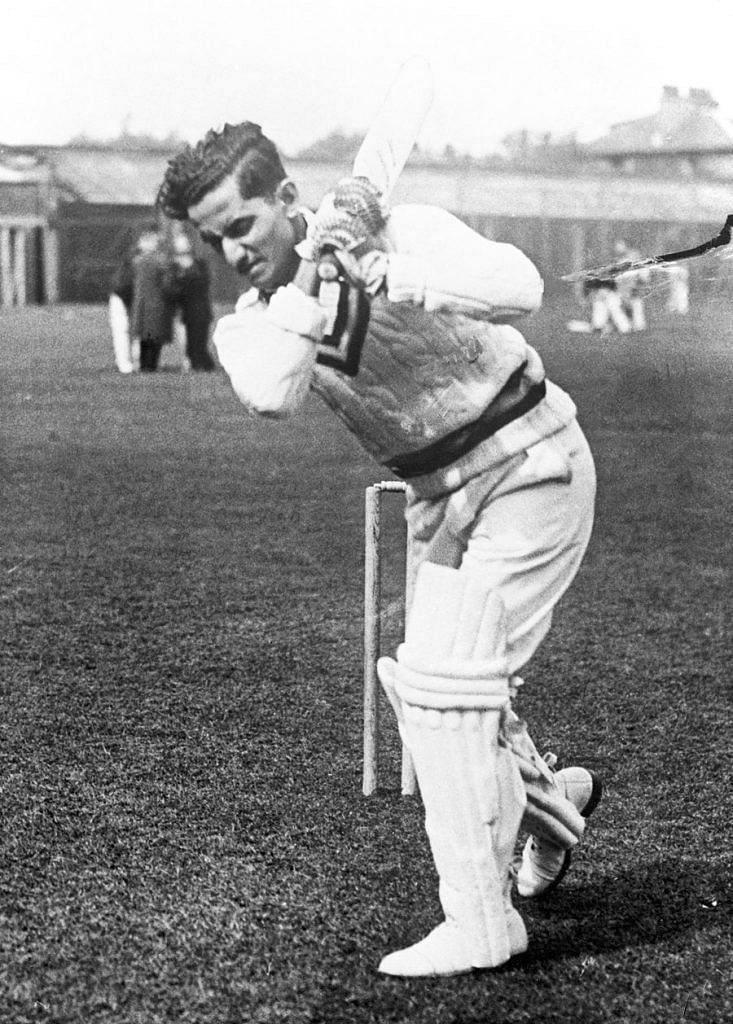Vijay Hazare was famous for making twin centuries against Don Bradman’s ‘Invincibles’ in Adelaide, and also for getting The Don clean-bowled twice.
New Delhi: For 20 years since making their Test debut in 1932, India had to wait for the sweet taste of victory. First, they had to go through the pains of growing up as a cricketing nation, then wait out the Second World War, and then the bloody Partition of the subcontinent.
But finally, in February 1952, India made history by registering their first-ever Test victory against England. And thus, Vijay Samuel Hazare was immortalised as the first man to lead India to victory in international cricket.
Long before that, Hazare had proved his mettle as a batsman and medium-pace bowler. He was the first Indian to reach the 1,000-run mark in international cricket, as well as being the first from the country to score a first-class triple century. But the biggest feather in his cap were his twin centuries against Donald Bradman’s ‘Invincible’ team in Adelaide in 1947-48, as well as the two occasions he clean-bowled The Don himself.
On his 14th death anniversary, ThePrint looks back on the life and career of Vijay Hazare, and pays tribute to one of India’s first great batsmen.
Test career
Hazare was born on 11 March 1915, in Sangli, Maharashtra, to a school teacher, but from an early age, he was interested in cricket and football more than books. He began his cricketing career as a medium pacer who could also bowl wrist spin.
Hazare’s first employer, Maharaja Vikram Singh of Dewas (in modern-day Madhya Pradesh), roped in legendary Australian spinner Clarrie Grimmett to coach Hazare with bat and ball. It was Grimmett who asked Hazare to focus on his batting, helping him become one of the finest batsmen of the post-war era.
Hazare made his debut against England at Lord’s on 22 June 1946, and in a career spanning 30 matches, scored 2,192 runs at 47.65 with seven centuries and nine half-centuries. He also took 20 wickets.
He was the first Indian batsman to 1,000 Test runs, and also one of the fastest to the mark, accomplishing it in his 25th innings.
In 238 first-class matches, Hazare scored 18,740 runs, averaging 58.38, with 60 centuries and 73 half-centuries.
Hazare also held the record for the highest partnership for any wicket in first-class cricket — in the 1947 Ranji Trophy final, he put on 577 for the fourth wicket with Gul Mahomed for Baroda against Holkar. The record stood until 2006, when Sri Lanka’s Kumar Sangakkara and Mahela Jayawardene put on 624 for the third wicket against South Africa in a Test match in Colombo.
Also read: Remembering ‘Dadamoni’ Ashok Kumar: A perfectionist actor, homoeopath & ‘wacky’ gentleman
A battle between Vijays — Hazare and Merchant
Hazare and Vijay Merchant — teammates for the Indian national team — had a massive run-scoring rivalry in domestic cricket, hitting its peak in the middle of the Second World War.
In the Bombay Pentangular of 1941-1942, Merchant scored 243 while playing for the Hindus, but Hazare bettered the mark in November 1943, scoring 248 for The Rest against Muslims.
The very next month, in the final of the Pentagular between the Hindus and The Rest, Merchant scored 250 in the Hindus’ first innings, which Hazare surpassed by making 309 in The Rest’s second innings. This was Hazare’s second triple century, having scored 316 for Maharashtra against Baroda in 1940.
A disciplined soldier, never a commander
Hazare captained India for the first time in 1951, against the visiting England team, and scored hundreds in the first two Tests in Delhi and Bombay (now Mumbai). While India lost the fourth Test in Kanpur, they won the final Test in Madras (now Chennai) by an innings and eight runs to register their first-ever victory.
However, things went downhill from there for Hazare the captain. In 14 Tests — nine against England and five against West Indies — India lost five and drew eight, and earned Hazare the reputation of not being a natural captain, and leading an unstable team. The pressure of captaincy also seemed to have a negative impact on his batting. His final Test as captain, in Kingston, Jamaica, was also his last appearance for India.
According to The Guardian’s obituary, Merchant said of Hazare: “I wish Hazare had never captained India. He was always a disciplined soldier, never a commander. Captaincy affected his otherwise unflagging concentration and he was never the same batsman again. It was a tragedy of Indian cricket.”
Also read: Raj Kapoor, the ‘greatest showman’ of Indian cinema
Post-retirement
A private man, Hazare steered clear of controversy in the 51 years he lived after his last Test match. In that time, he was the first cricketer to be awarded India’s fourth-highest civilian honour, the Padma Shri.
India’s premier domestic one-day tournament, played between the states, is named Vijay Hazare Trophy in his honour.
Hazare died on 18 December 2004, due to intestinal cancer.
